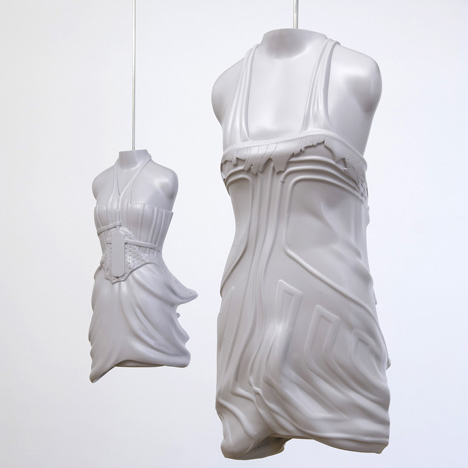
Fashion designer Hussein Chalayan presents work including these moulds used to make his Inertia series of dresses (see our earlier story) at Spring Projects in London.
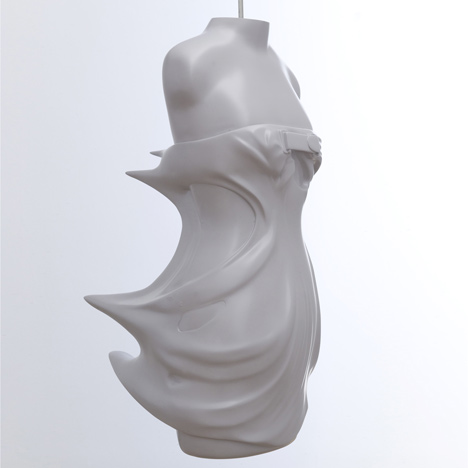
The show includes sculptures, films and animations by Chalayan.
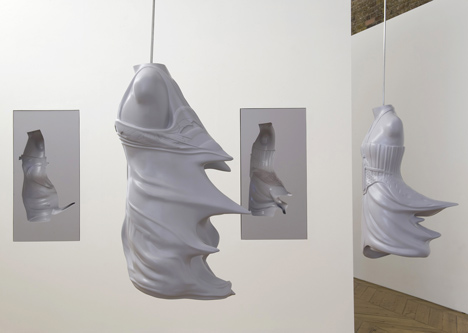
It focusses on the Inertia project that resulted in his Spring Summer 2009 collection of tight dresses with foam shapes protruding from the backs, as well as his Anaesthetics series of eleven films about the violence involved in processes we find normal, like air travel and the production of processed food.
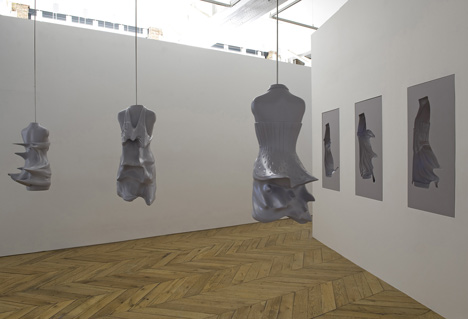
Called B-Side, the exhibition concludes tomorrow.
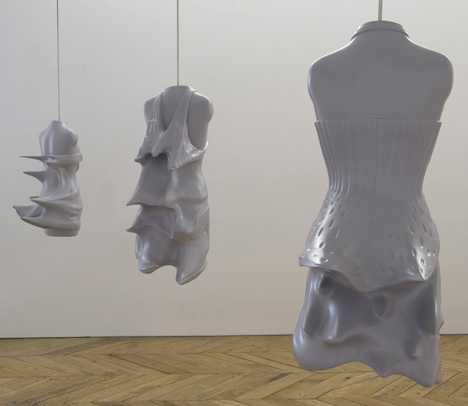
See all our stories about Chalayan »
The following information is from Spring Projects:
B-SIDE
Hussein Chalayan
17th September to 23rd October 2010
This autumn, Spring Projects presents B-side, an exhibition of work by Hussein Chalayan. From pieces that are being shown for the very first time, to others that are represented in exciting new ways, B-side will showcase Chalayan’s explorations into the body, movement and voyeurism and highlight his fascination with form and process.
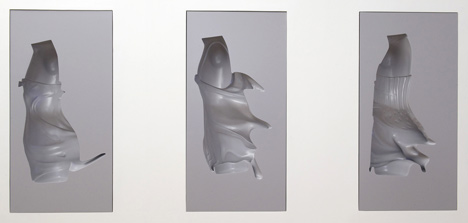
While Hussein Chalayan is known first and foremost as a designer of radical fashion, investing his clothing with ideas and narratives – speed, displacement, cultural identity and genetics are favourite themes – he has also created a significant body of art works which are collected internationally. In B-side, we see Chalayan as sculptor, film-maker and animator. The exhibition rounds up two discrete projects Anaesthetics and Inertia. Though independent works, together they create a coherent articulation of Chalayan’s key themes.
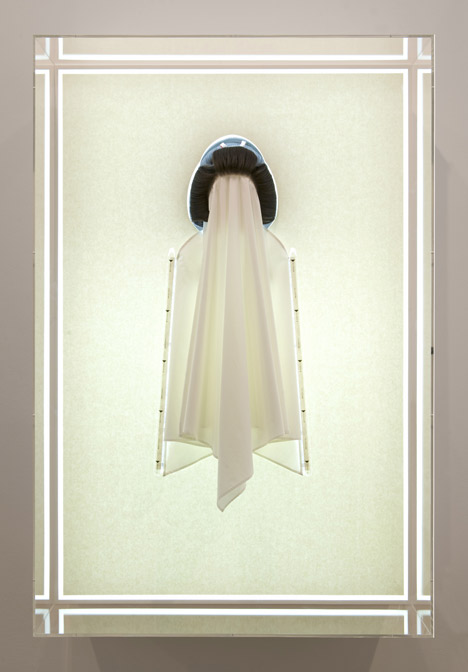
Chalayan’s films allow him to animate his own designs and work with movement, narrative and sound. (Music has always been an important part of his fashion shows, with soundtracks provided by a range of musical choices from a live Bulgarian choir to songs by Antony and the Johnsons to Hussein himself playing electric guitar.) He describes Anaesthetics as a “film sketch book”.
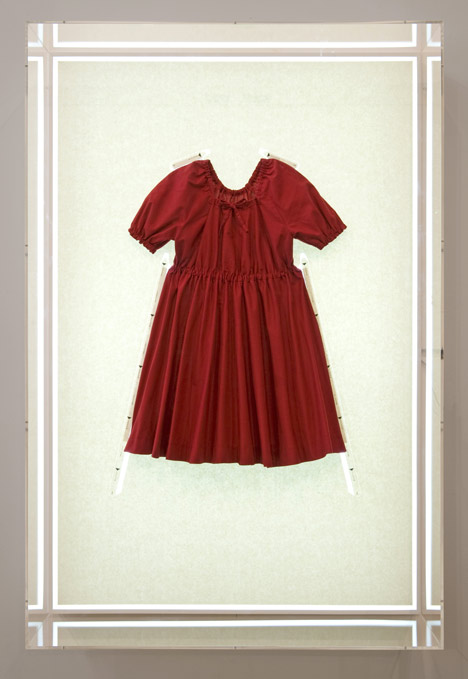
It consists of 11 “chapters”, each based on what Chalayan calls “institutions which codify behaviour in order to conceal violence”. If that sounds extreme, he is referring to situations we find normal – the strange conditions of air travel where artificial air and entertainment keep us subdued; the aggressive way that much refined food is prepared.
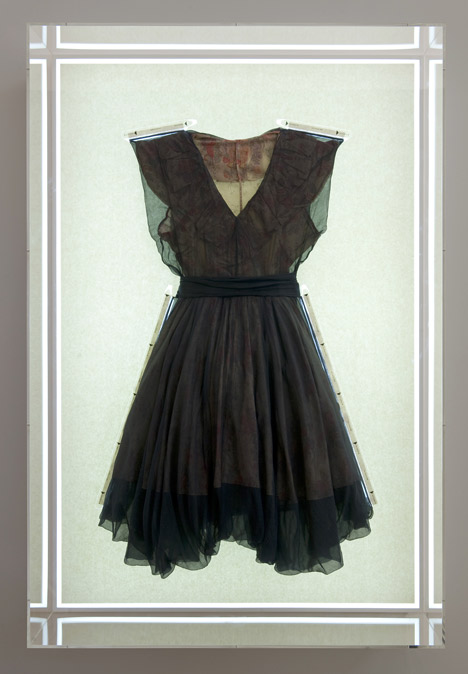
While the film will be shown in its entirety, Chalayan has created lightboxes that isolate imagery from the film, with three dimensional objects. These will be displayed for the first time.
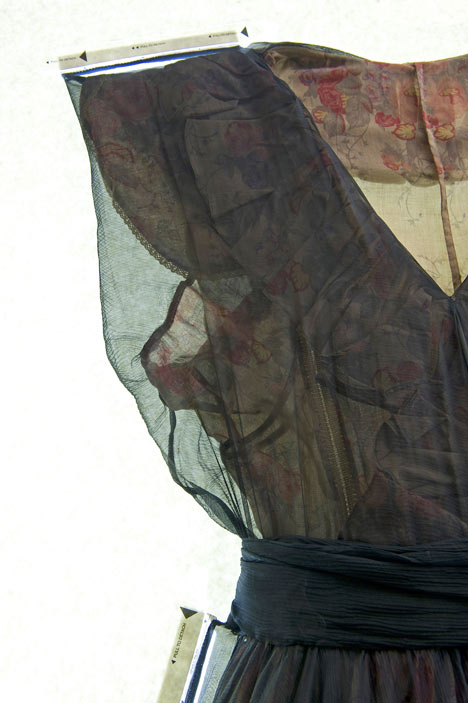
Inertia was the name of Chalayan’s Spring Summer 2009 collection, in which the showstoppers were body hugging dresses with dramatic protruding backs created in rubber foam and finished with a liquid sheen. A snapshot of speed and the moment of collision, they added to his inventory of dresses as narrative objects. Previous examples include breakable dresses formed in resin and others that translated into pieces of furniture.
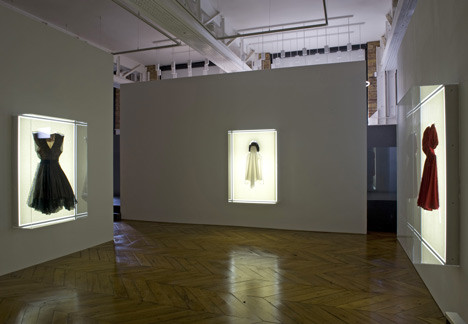
In B-side, he has chosen to display the moulds, which offer a fascinating insight into the creation of the work. “The moulds are really beautiful in their own right,” says Chalayan. “But showing them is about process and the in-between moments. I always talk about movement and animation in my work, but this instead is the monumentalisation of the frozen moment. A freeze frame.”
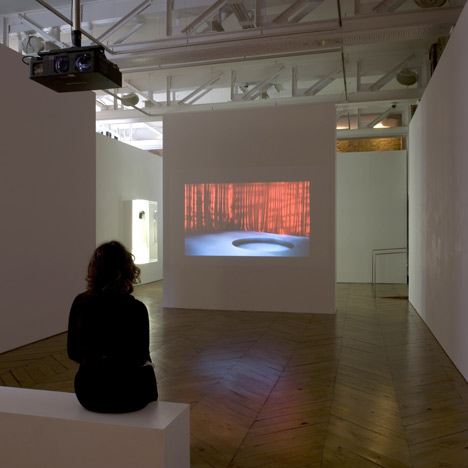
Hussein Chalayan was born in Cyprus in 1970, but has lived in England since the age of 12. He graduated from Central Saint Martins in 1993, and received instant recognition for his graduate collection, “The Tangent Flows.” The pieces – they had been covered in iron filings and buried in his back garden – set the tone for an illustrious career as a fashion designer and artist. His innovative and challenging work has determinedly blurred the boundaries between fashion and art. “The exciting thing about Hussein Chalayan is the way he refuses to let himself be claimed as the territory of any one tribe. He is part of the fashion world, but equally at home with design, art and architecture,” says Deyan Sudjic, director of the London Design Museum. Combining a fascination with culture, technology, science, geography and the human body, Chalayan’s alternative approach has made him one of the most exciting artists and designers of his generation.
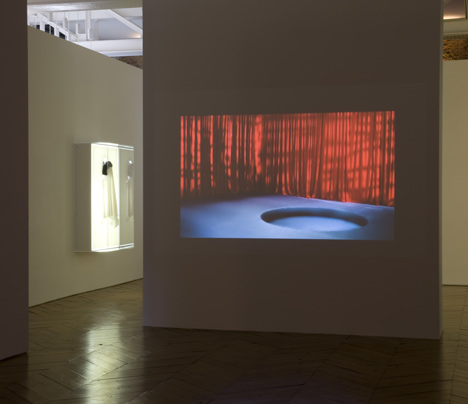
Spring Projects is a contemporary custom-built gallery space situated in Kentish Town, London, which opened in February, 2008. Under the direction of Andree Cooke, the gallery has received phenomenal critical acclaim and media attention as a space that seeks out work which takes a broad cultural perspective and an interest in the cross-pollination between creative fields, work that is risk-taking and experimental in its approach.“I think there is a special energy in London’s smaller centres, like Kentish Town, which is emerging as a cultural enclave,” says Chalayan. “There are very few spaces in Britain which are interested in the fluid relationship between art and design. Spring Projects is one of them, actively promoting and respecting work which falls between different disciplines.”




wonderful